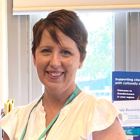by Alison Farnham and Costanza Ravanelli, Family Recovery Counsellors
Shame can arise from early adversity and result in feelings of inferiority and powerlessness. It may also lead to a range of poor coping mechanisms and behaviours, including substance use.
Many teens are coping with other mental health issues, like depression, social anxiety, PTSD or ADHD. In addition, we are just coming from a global pandemic. Some young people may be overly vulnerable, resulting in the use of poor coping strategies such as substance use, and criminal or risk-taking behaviours to gain peer acceptance.
Embarrassment, isolation, and disempowerment are common and normal feelings for loved ones who are attempting to manage and contain the substance use and associated behaviours of their significant others.
A person’s alcohol and drug use, and comorbid mental health issues have a profound impact on families and significant others. Family members and loved ones will experience feelings of guilt and shame, grief and loss, anger and anxiety, and resentment and exhaustion. Spouses, partners, children, adolescents, parents, and grandparents’ quality of life are significantly impacted; they are ‘walking on eggshells’ and ‘overcompensating’ for the person experiencing addiction and their associated behaviours.
Consequently, their own mental health and physical wellbeing have been neglected, as they continue to care for their loved ones and adapt to ‘maintain normality’ within the family system.
“I want to learn how to interact with him…” CatholicCare Sydney client
A message for parents could be to spend concentrated one-on-one time with their kids. Listen to them, with love and without judgement. Understand what they are coping with and help them get through. Your child could simply be experimenting and be more susceptible to alcohol and drugs. Do not assume they can do it by themselves. They need an established support system.
Research suggests that a family member’s considered responses and education regarding their loved one’s substance use, mental health issues and associated behaviours, can support positive change for the person using and for all family members. The person using alcohol and drugs will begin to reduce their use or harm-minimise and may also seek support for their recovery.
“I have a better understanding...(of what is happening for my son)” CatholicCare Sydney client
Importantly, clients who have participated in the Family Recovery program suggest an improvement in feelings of empowerment and self-care. The program delivers positive outcomes for the family members including improvements to their mental and physical health, communication and relationships.
“I feel empowered to verbalise my boundaries and expectations” CatholicCare Sydney client
You are not alone. There is support out there, from both clinicians and peers who can relate to what you are going through.
Our Family Recovery Programis unique in its approach. Offering support for teenagers who are experimenting with substances while supporting their parents, significant and other family members. The aim is to provide a multi-disciplinary approach to recovery from substance use, mental health issues and the associated behaviours.
Family Recovery Groupsprovide information on the effects of their loved one’s substance use and the related mental health issues, and the impact on the individual and the family. The aim is to assist in developing skills and strategies for managing or dealing with the key issues and behaviours associated with substance use. A strong focus is on offering support, information, and coping skills to improve emotional wellbeing and support.
“the program…highlighted…my behaviours, and areas for improvement” CatholicCare Sydney client

Now, a message for teenagers: you are not alone. Whatever you are experiencing, many others have experienced this too. You do not need to take on the identity of the party friend, you can find an identity without alcohol and drug dependency. Your true identity. Please also be open to receiving help from your family, friends, or a professional. A therapist can help you step back, gain perspective, and develop strong coping skills. No matter what life throws your way. Getting help is a strength, not a weakness. You deserve to be truly happy; you deserve to be comfortable with your own thoughts. You can be.
It is critical as therapists to be good listeners, consistently validating their thoughts and feelings, and staying connected to the adolescent unconditionally can help promote the healing process and empower them. While providing education, therapy and support to their significant others who are supporting and caring for them.
“Really valued the group sessions as they helped me greatly to understand the issues that (my son) has been going through and shed some light on some of the things that I had been doing that may have contributed to his using” CatholicCare Sydney client.
 Alison Farnham has 8 years’ experience working in addictions, including 7 years in a residential drug and alcohol rehab. She joined CatholicCare Sydney's Family Recovery program as the Counsellor for Adults in April 2022, and supports families who care for loved ones with substance use and mental health issues, to gain knowledge, insight and strategies to cope in difficult and stressful environments.
Alison Farnham has 8 years’ experience working in addictions, including 7 years in a residential drug and alcohol rehab. She joined CatholicCare Sydney's Family Recovery program as the Counsellor for Adults in April 2022, and supports families who care for loved ones with substance use and mental health issues, to gain knowledge, insight and strategies to cope in difficult and stressful environments.
 Costanza Ravanelli worked as a psychologist in private practice for 5 years supporting parents, teenagers, and couples to improve their wellbeing and find their way to self-accomplishment before moving across to CatholicCare Sydney. She is about to complete her Master of Counselling Advanced and is a member of the Family Recovery and Parenting teams.
Costanza Ravanelli worked as a psychologist in private practice for 5 years supporting parents, teenagers, and couples to improve their wellbeing and find their way to self-accomplishment before moving across to CatholicCare Sydney. She is about to complete her Master of Counselling Advanced and is a member of the Family Recovery and Parenting teams.